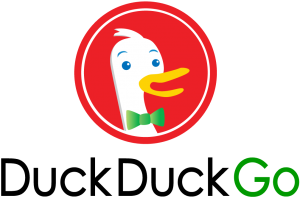It was really hard to switch off of Google, and when I finally did it, I didn’t think I would switch back.
In the past, whenever I’ve tried another search engine, I have failed. Searching is such a natural, compulsory thing to do on the internet, that whenever I have navigated to Bing or DuckDuckGo, I find myself staring at a blinking cursor not entirely sure what to search for. The conscious decision to make a search has always interfered with my ability to search naturally.
 But the recent revelations about PRISM and the NSA have led to a surge in interest in cutting the chord to big cloud services like Google whose data collection practices are well known. So, following the herd, I decided it was time for me to switch my default search engine. It wasn’t enough to remember to navigate to DuckDuckGo for searches; instead, I had to change my address bar default search engine in Chrome to force me to use the new engine.
But the recent revelations about PRISM and the NSA have led to a surge in interest in cutting the chord to big cloud services like Google whose data collection practices are well known. So, following the herd, I decided it was time for me to switch my default search engine. It wasn’t enough to remember to navigate to DuckDuckGo for searches; instead, I had to change my address bar default search engine in Chrome to force me to use the new engine.
Before I knew it, my 50 or so odd searches a day were going through DuckDuckGo instead of Google.
Now, I love that DuckDuckGo doesn’t track searches. In terms of their commitment to privacy and their users, I don’t think there’s a better option. And I love that there’s an alternative for people concerned about their data being collected. But it took me only a week using DuckDuckGo to appreciate the little things that Google does that still make it a far superior product.
Google is Faster
I didn’t think this would be something I even noticed, but it was apparent immediately that with DuckDuckGo, search results take a fraction of a second longer to show up. It must be no more than 200-300 ms, but it really makes a difference. Every time I am faced with that momentary pause all I can think about is switching over to Google to get faster gratification.
Google Keeps Up with Timely Search Queries
Earlier this week, I searched for “Pride,” expecting to find out more about Pride Weekend in San Francisco. DuckDuckGo seemed to have no understanding of that context, whereas Google’s first results were exactly what I was looking for. It wouldn’t require tracking, just an IP lookup to know where I am and return timely results. Google’s natural integration with their news engine is invaluable to my search experience.
Google Doesn’t Index Sites with Code Errors
This is huge for me. Since I am coding all day long, I need to be able to search for errors that crop up from time to time if I don’t understand them. There was one PHP error this morning that I searched (DuckDuckGo’d?), and the top 20 results were sites that had thrown this error. The sites were destinations like OneFreeCoupon.com–completely irrelevant to my query. Google, as usual, returned very useful StackOverflow results that got me on the right track.
Google Knows When Not to Surface Wikipedia
I love Wikipedia, but sometimes it isn’t the most relevant result. The “Pride” search is a good example, but in general if it isn’t a proper noun, I am more likely to go for a news or video result than Wikipedia. DuckDuckGo seems to surface Wikipedia way too much. I like the way Google does it, especially when they float the Wikipedia results to the right so I always know where to find the article.
In short, I love that DuckDuckGo is gaining interest, and that Google has competition, and that there are choices for all of us when we use the internet. But I tried, and for the things that matter to me, it seems that Google is just a better experience. I hope DuckDuckGo improves the product, because eventually I would love to switch back. But philosophical alignment isn’t enough to get me to use an inferior product.
So, Google, you have me back for now.
